“Every single opportunity that presents itself is a gift. Every experience is a teachable moment, but you have to be receptive of the possibility of growth, failure, and change. ”
R.S. Rowe
Founder of RSRoweBooks, Student

graduate engineer
Working as a project engineer in water/wastewater consulting engineering has been an incomparable opportunity. The learning curve has been substantial- steeper than anything I experienced during my time in undergrad. I have had the experience of working with Professional Engineers, going on site visits, conducting construction observation, and receiving in-office training on project management and conduct. I have had numerous opportunities to interface directly with clients, learning the value of professional communication and presentation skills.
I have continued to understand and develop an appreciation for continued self-investment. As a project engineer, I am becoming very familiar with proper site safety dress codes and procedures, which are very different than in-office business casual wear and expectations. I am continuously learning how to be a better team player, balancing the opportunity to learn from veteran engineers, and demonstrate newly acquired knowledge as projects develop overtime.
Residence Assistant
Being a resident assistant on campus taught me a lot about balance, time management, inclusivity, presentation, and leadership. Being responsible for the upkeep of an entire building and its everyday operations is not seamless. It is difficult, as an RA, to equilibrate your personal life and your professional life because you work where you live. Knowing how to engage in self-care while simultaneously looking after the well-being of 90 other students is a huge opportunity for growth. With duty days set in place, it is important to organize your academic, professional, and personal time. Keeping every hour of the day organized and accounted for is one of the most difficult parts of having a position that requires so much active, engaged time. Having to decorate a building made of cinder blocks and turn it into a home for 90 students was also an important part of being an RA. Students noticed their door decks and knew when their RA took time to craft their personal name tags.
Bulletin boards that were decorative and create caught the attention of residents and also supplied important information. Fliers, decorations around the holidays, petitioning for new furniture in the lobby, and other additions to the residence halls was all a part of the job. When the residents could tell that you took your time and put effort into the way that you presented their home to them meant a lot to them. Leadership was one of the biggest takeaways from the RA position. RAs personal behavior is one of the biggest tone-setters of a residence hall. Being dismissive, absent, irresponsible, or breaking policies yourself could make for a chaotic living environment for all involved. Showing first-year students that their RA follows the rules, is present in the hall, listens to them when they voice concerns, studies arduously in the common spaces, and hold their safety paramount to everything creates a great home for students.

Student Liason
Serving on a hiring committee as a student liaison has served as a secret weapon of sorts when it comes to professionalism. It has been one of the quickest professional development learning curves that I have had the opportunity of experiencing. Watching how potential employees are vetted, evaluated, and chosen is a professional experience that highlights the importance of the cross section between interview skills and professionalism.
Professional dress, the way you present yourself and your skills to others, your ability to articulate your experience and knowledge, and preparedness were all things that I understood were important, but seeing the way that employers evaluate and notice these things was invaluable. I think that if a student ever has the opportunity to be a part of a hiring committee or observe as a panel evaluates potential employees that they should take advantage of it and pay close attention to the evaluations and decisions that were made.
Peer instructor
Being a peer instructor for a Success Strategies class was not a difficult learning curve because I was also serving as an RA at the time. Knowing relevant information about navigating through the university and academia was not only a part of my responsibilities as a student, but as an RA that many first-year students came to for help and guidance.
Helping other students learn how to study efficiently, take advantage of on-campus resources, how to find free academic aid, better their GPAs, juggle extracurricular activities, employment and academia, and many other learning curves presented to freshman was something I was accustomed to in the residence halls. However, as a peer instructor, there was less room to be personable and relatable because I was more of an “instructor” than an RA.
This position taught me that although your areas of knowledge may overlap, different attitudes and ways to approach communication are important to maintain. Being aware of your audience and what capacity you are serving in and being able to adapt to that is imperative, and this position taught me a about versatility,
IAC Intern
As an intern, I continue to learn new things about the profession I am pursuing and my goals for the near and far future. I have learned the importance of diving into projects fearlessly, and not being afraid to learn new things from the professionals that I work under. Although it is daunting to present projects or your findings, it is important to know how to articulate what it is that you have been working on. Knowing how to simplify difficult concepts that you have been researching for weeks to others who are less familiar with your work is also important.
I have also learned that in certain positions you will have to learn how to do things that you initially did not anticipate. I was aware that I would have to work with patent prior art, but marketing projects were a foreign concept to me. After a bit of struggle and asking for help, I grew to get the hang of marketing research and projects and pick up a few more during my time as an intern.
Because I am still serving as an intern, I continue to learn more and more about the world of intellectual property, the marking that goes into these technological breakthroughs, and the type of professionals that make all of these things happen.
Skills AcQuired

Communication
Learning how to convey your thoughts is important. Time is a commodity, and knowing how to effectively communicate saves time, money, confusion, and misunderstanding. Knowing how to present complex thought in an appropriate way for different audiences is a necessary skill in any environment,
Globalism and Current Events
The things that happen around you directly impact the way that you approach problems and the solutions to those issues. Knowing that younger people have shifted to using Twitter based on an article you read in your e-Newspaper is important, and can make or break your attempt at marketing. Knowing what is happening around you can not only influence your work, but the type of interactions you have with other around you. Your boss and you may not have anything in common, but if you read the same journal they do, you may have common ground that you did not have before.

Creativity
Creativity is not just about art. Creativity will help you attack unsolvable problems, approach a challenge in a new manor, give you an edge-up in a presentation, or help you stay relevant and create a larger dichotomy between you as a professional and a thinker and the other people around you. Creativity is a catalyst to new technology, innovation, and progression. Not being afraid to think, and act, outside of the box has helped me grow, learn, and make many situations smooth and problem-free.

Technological Navigation
The world of technology is constantly evolving, and with that comes the responsibility of keeping up. Knowing how to navigate certain applications, knowing how to find new ways to make fliers, and keeping up with the curve is important. Trial and error and adventurism is an integral part of staying current in technological imperatives.
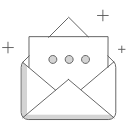
Timeliness and Consistency
Being punctual and present is incredibly important. Others notice if you are always running behind, constantly on your phone during interactions, do not respond to emails, or do not get back to them in a timely manor. Consistency and reliability can open and close doors of opportunity and grace.

Organization
Organization does not just mean having a clutter-free space. Organization can be the compartmentalization of objects, time, tasks, and your interactions with others around you. Keeping a clean, organized work space minimizes clutter and the loss of important documentation. Organizing your time and keeping a journal or a record of what you have been doing is not only great to showcase your employers where your time goes, but it can be a way to look back and reflect on how you can better manage your time. Keeping a planner of tasks and due-dates can help you avoid dropping one ball while trying to juggle four others. Socialization is also an important part of professionalism and your private life. Sometimes those collide, and being available for new connections and still keeping up with personal interactions that keep you happy creates a great balance
go back to R.S. Rowe’s Eportfolio
Ready to go back to the ePortfolio? Click the button below.